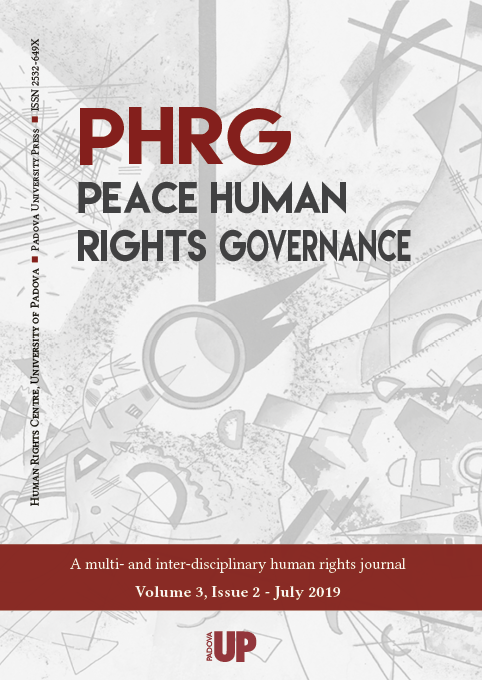Raccolte

Religious Freedom Governance or Institutionalization of a Heterodox Religion? Turkey’s Urban Policies with Respect to Alevi Population
- Sito internet
- Peace Human Rights Governance 3(2)
- Tipologia pubblicazione
- Articolo / Saggio
- Pagine
- 193-214
- Lingua
- EN
In a country where Sunni Islam is hegemonic and the place of worship of Alevis, called cemevi, is not recognized by the state, mosques function as symbolic manifestations of power. The cemevi can be interpreted as space of a counterculture or as a counter-space in urban life of Turkey. Because it is the place of worship of an oppressed community, its meaning exceeds the boundaries of religion. Throughout the country, cemevis are not only the gathering places of Alevis but also serve as the milieu in which counterhegemonic approaches flourish. These places are legally “undefined” and embrace people who do not belong to that form of Sunni Islam controlled and shaped in accordance with the needs of the regime. At the beginning of the 2000s, the Justice and Development Party (AKP) government claimed to embrace Alevi population through democratic openings, in the context of religious freedom governance of religious and ethnic minorities and supported the construction of cemevis although it seems to still disregard giving them legal status. This paper examines spatial interventions of the AKP government in order to reconfigure Alevism. In this context it firstly examines the “joint mosque-cemevi project” consisting of complexes attempted to be built in the Alevi-populated neighbourhoods. Secondly, it focuses on the case of Dersim and scrutinizes in detail the removal of open places of worship; nature cults – trees, stones, mountains, caves, some animals, and water – treated with great reverence and worshipped by Kurdish Alevi people who live in this city. In other words, this paper seeks to introduce how a Sunni-conservative government tended to regulate or reshape conflicts between Sunni and Alevi populations in spatial scale. It discusses through which mechanisms the AKP government approaches Alevi population in cities and analyses the dynamics of negotiations and resistance between Alevis and the Turkish state in spatial scale.

